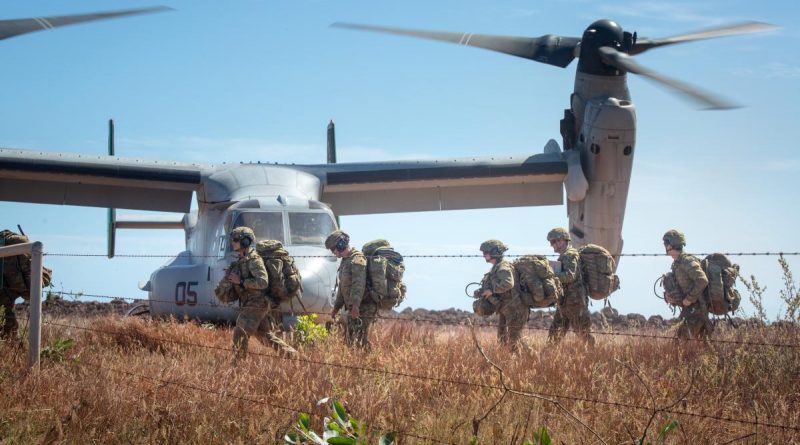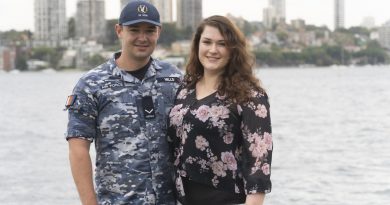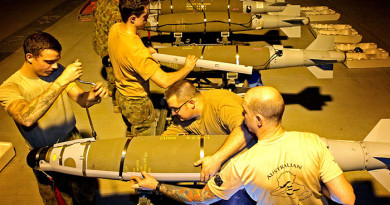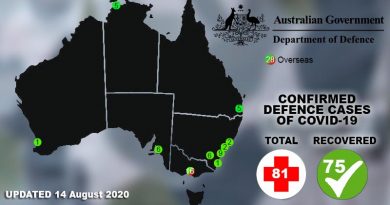Interoperability HADR than a Crocodile Response
Share the post "Interoperability HADR than a Crocodile Response"

The Australian Defence Force and Marine Rotational Force – Darwin (MRF-D) honed their interoperability during a recent Humanitarian Assistance and Disaster Relief (HADR) activity in the Norther Territory.
CAPTION: Australian Army soldiers carry their gear off a landing zone during Exercise Crocodile Response at Point Fawcett, Northern Territory. Story byLieutenant Gordon Carr-Gregg.
Exercise Crocodile Response focused on enhanced coordination between Australia and the US in responding to natural disasters in the region.
It was conducted in partnership with an Indonesian delegation and other government agencies, including DFAT, USAID Bureau for Humanitarian Assistance, and the Bureau of Meteorology.
Commander Headquarters Northern Command Colonel Marcus Constable oversaw the exercise in conjunction with MRF-D commander Colonel David Banning.
“This was the first of several exercises planned together for 2021. The presence of the MRF-D in Northern Australia better positions both Australia and the United States to respond to crises in the region, including Humanitarian Assistance and Disaster Relief,” Colonel Constable said.
“Australian and US forces were able to exercise how they operate within a broader multi-national and whole-of-government response to a disaster in the region.”
Staged at Robertson Barracks and Larrakeyah Defence Precinct in Darwin, the exercise deployed capability over a hundred kilometres north to a defence facility at Pt Fawcett in the Tiwi Islands via airlift and sealift methods. Exercise controller Lieutenant Williams believed getting out to the Tiwi islands for the activity was a great opportunity to work closely with the marines and DFAT counterparts.
“Deploying side by side, using both ADF watercraft & USMC aircraft, allows us to get to know each other’s process, policy and procedure at the personal level and organisationally, proving plans and capabilities we have in place to respond to a humanitarian crisis together,” Lieutenant Williams said.
“The scenario this year had us responding to an area of devastation in the wake of a tropical cyclone. We provided power generation, construction, road clearing and water purification capability to a remote and pretty austere environment. We were self-sufficient in our deployment so that we could be best positioned to provide assistance as tasked through the DFAT representatives on the ground with us.”
Consul of the Republic of Indonesia to the Northern Territory Gulfan Afero, along with officials from the Indonesian Armed Forces, Indonesia’s National Disaster Management Agenc, and Indonesia’s National Search and Rescue Agency, observed the exercise and shared their significant operational HADR experience. All visiting foreign officials conducted mandatory quarantine in keeping with federal, state and territory guidelines.
Maintaining a secure and stable region is a strategic priority for Australia and Indonesia.
2021 marks the 10th anniversary of MRF-D, which has proven to be a significant force for stability and security in the region. It has created new opportunities for regional engagement and has better positioned both nations to respond to crises in the region.
.
.

.
.
Share the post "Interoperability HADR than a Crocodile Response"





